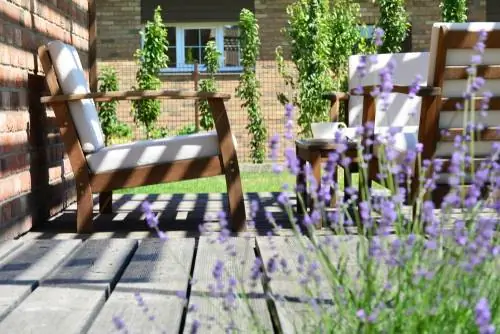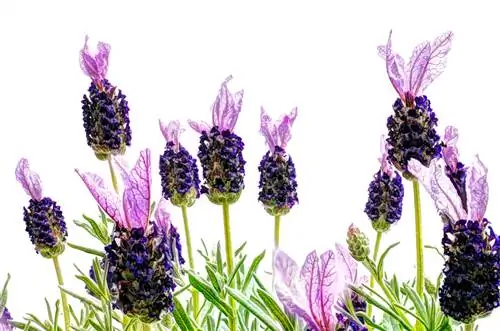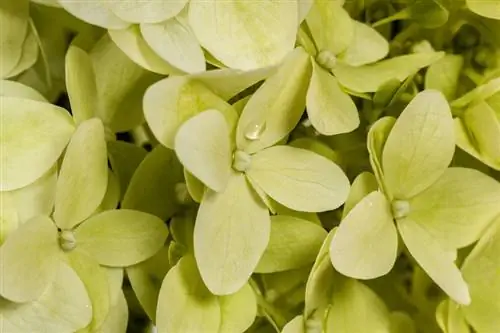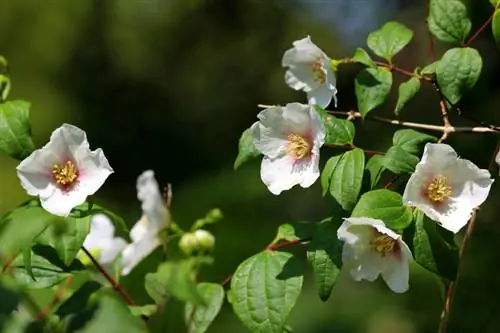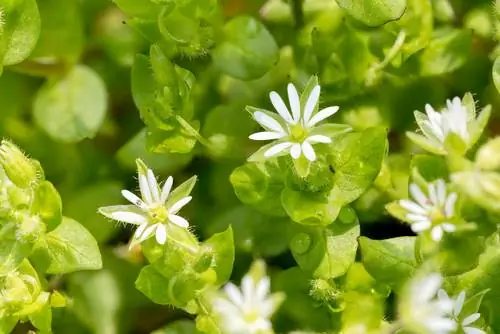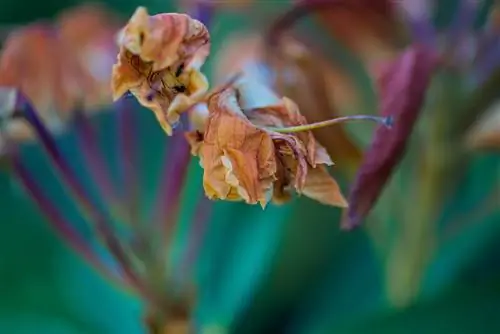- Author admin [email protected].
- Public 2023-12-16 16:46.
- Last modified 2025-06-01 06:02.
When the days are still nice in late summer, you love to enjoy them in the garden and on the terrace - even with a glass of lemonade or ice cream in your hand. If only it weren't for the wasps. But you can keep the pests under control with fragrant lavender in the garden.
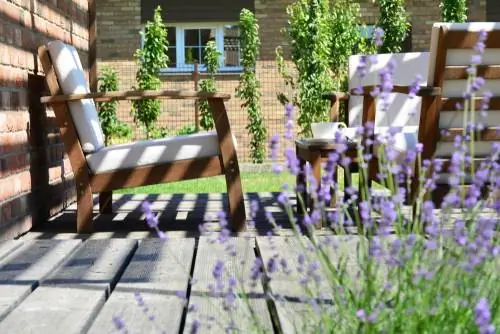
Does lavender help against wasps in the garden?
Lavender is an effective natural defense against wasps because its intense scent is avoided by the insects. Fragrant lavender varieties such as real lavender (Lavandula angustifolia) and large lavender (Lavandula latifolia) are particularly effective, while lavender oil can also be used to repel wasps.
Lavender - not for wasp noses
Lavender has been one of the most valued fragrant plants among us humans for thousands of years. In perfumes, in scented oils, in clothing bags or even in the kitchen, the Mediterranean plant has a real classic status. In the form of tea infusions, it is also proven to have a calming, sleep-inducing effect. With its silvery-green, needle-like foliage and deep purple flowers, lavender also has a high decorative value.
In this respect, lavender is an attractive garden plant for most people. The practical thing is that wasps don't like it at all. Its ethereal, somewhat herbaceous-strong smell is far removed from everything they prefer due to their nutritional needs, namely sweet things. That's why they avoid places where there is an intense smell of lavender.
Our advantages and the disadvantages for the wasps at a glance:
- Pleasant scent for us
- Flowers can be used for clothes bags or in the kitchen, for example
- High jewelry value
- Smell repellent to wasps
Favorable flowering time
A big advantage that lavender has in its function as a wasp repellent is its flowering period, which falls exactly in the peak phase of the wasp population. It begins to develop its flowers from July onwards and can then serve well in large numbers around the terrace. With a Mediterranean-style bed that you fill with several lavender bushes or border like a hedge, you create a romantic and at the same time wasp-free zone for relaxed garden stays.
It is also practical that lavender is hardy. This means you don't have to worry about planting wasps every year.
Important: Use scents
When buying lavender plants that are intended to be used specifically against wasps, you must of course make sure to choose scented varieties. The lavender varieties with the highest content of essential oils and therefore the most intense scent are real lavender, also known as scented lavender, and large lavender. Their botanical names are Lavandula angustifolia or Lavandula officinalis and Lavandula latifolia.
Also effective as an oil
You don't want to or can't grow lavender for taste or space reasons? No problem, because you can of course also use the lavender scent in other forms. For example, in the form of scented oil that you let evaporate in a scented light while dining in the garden. A practical side effect is that the flame also keeps the insects away.
Another way to use lavender oil is to put some of it in water and spray it over a water disperser.
And lavender oil helps against wasp plagues in another way: its essential oils, when rubbed into the skin, also relieve pain and itching during stings!

